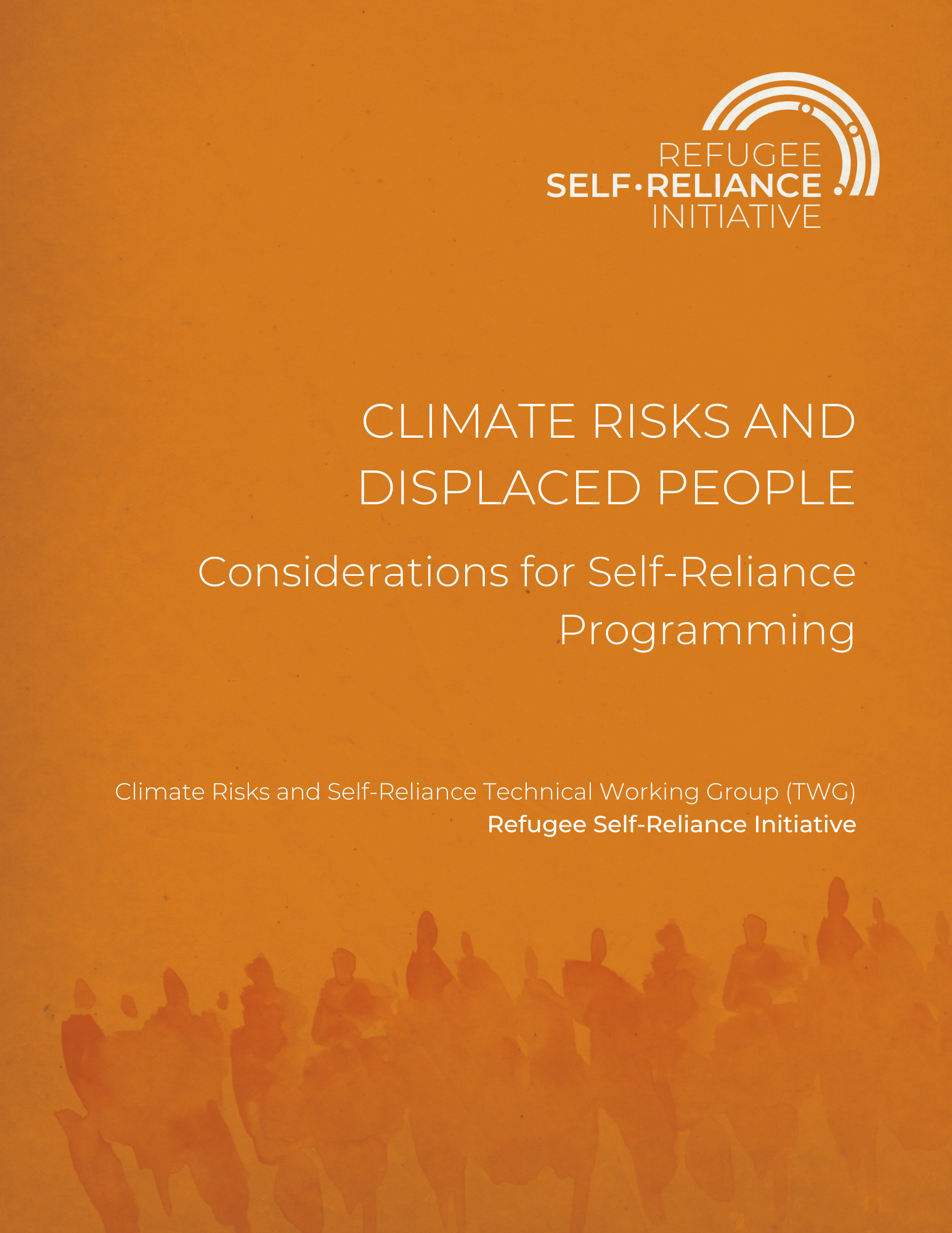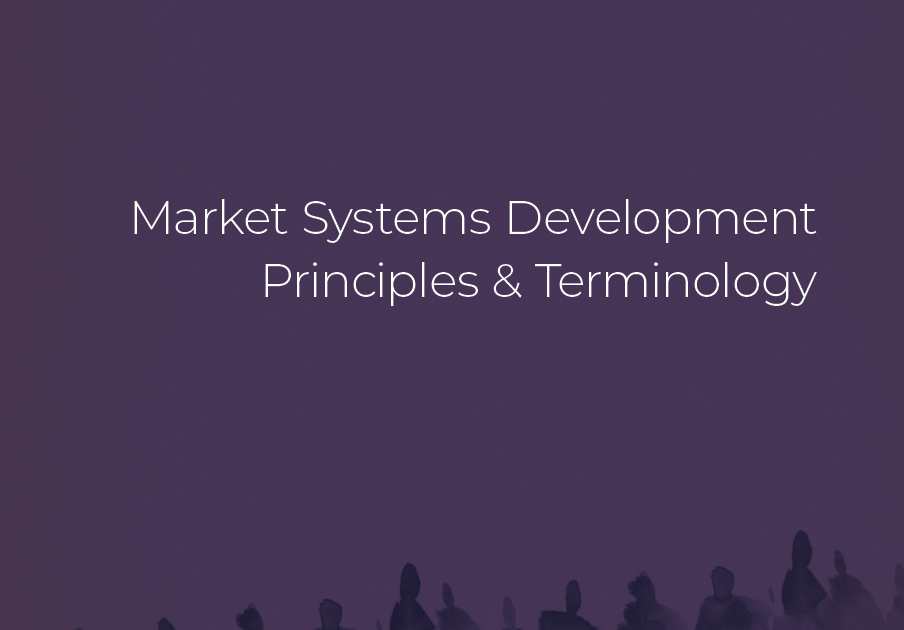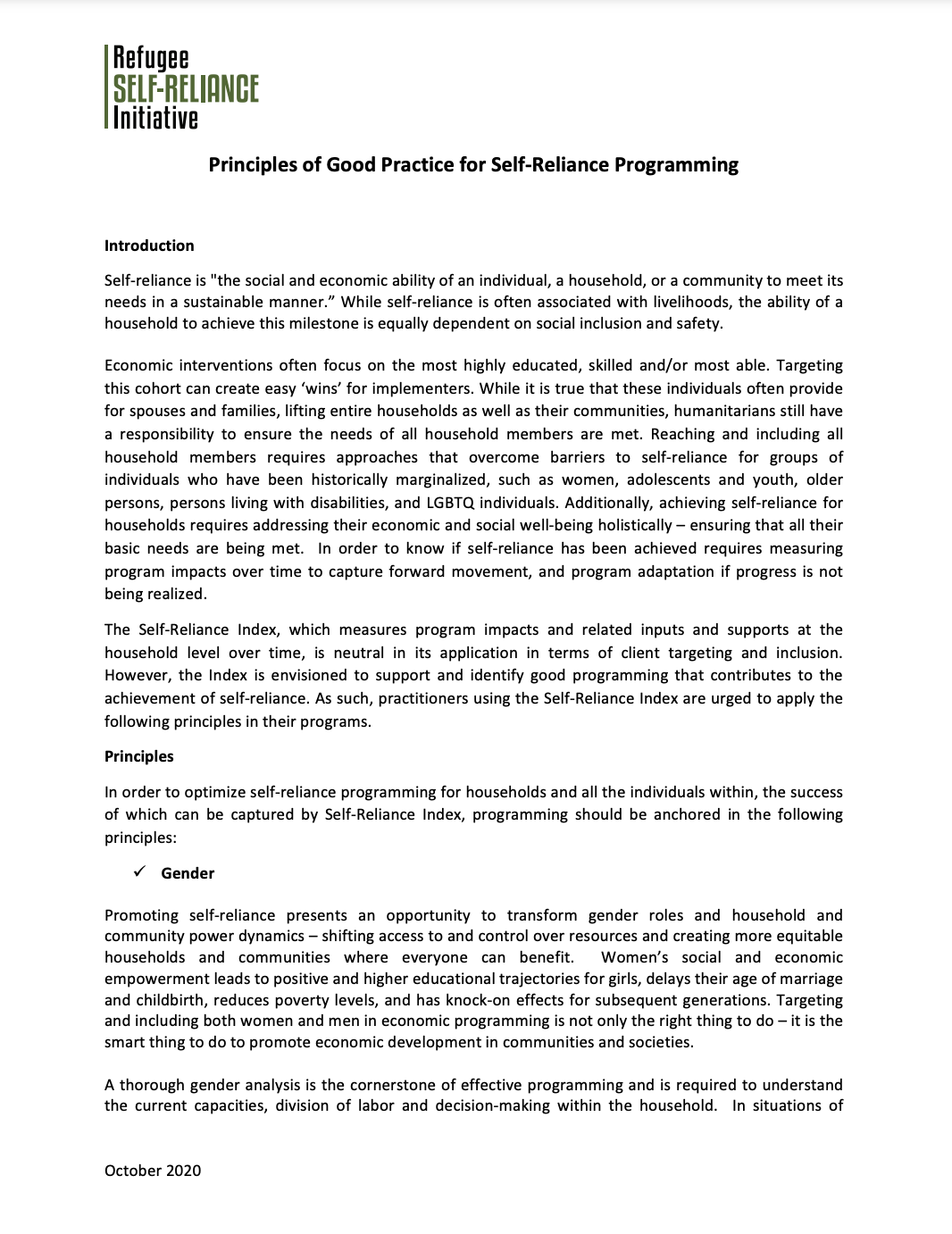RSRI Publications
Publishing Organizations: Refugee Self-Reliance Initiative
Authors: Dr. Ilana Seff, Dr. Lindsay Stark, Kari Diener, Kellie Leeson, Ned Meerdink, Alli Gillespie
Publishing Organizations: Refugee Self-Reliance Initiative
Author(s): Climate Risks and Self-Reliance Technical Working Group (TWG)
Publishing Organizations: Refugee Self-Reliance Initiative, RefugePoint, RELON Uganda, and R-SEAT
Publishing Organizations: Refugee Self-Reliance Initiative
Author(s): Dr. Evan Easton-Calabria
Publishing Organizations: Refugee Self-Reliance Initiative
Authors: Refugee Self-Reliance Market Systems Development Working Group
Publishing Organizations: RefugePoint and the Refugee Self-Reliance Initiative in partnership with refugee-led organizations operating in Nairobi, Kenya
Publishing Organizations: Refugee Self-Reliance Initiative
Authors: Allie Gillespie, Dr. Ilana Seff, Dr. Lindsay Stark
The Refugee Self-Reliance Initiative and the United States Department of State, Bureau of Population Refugees and Migration co-convened an innovation lab focused on refugee self-reliance. The lab included thematic discussions on: (i) Measuring the Impacts of Self-reliance: Data, Evidence, and Research; (ii) Supporting Programming and Practices to Advance Refugee Self-Reliance; and (iii) Fostering Policies to Promote an Enabling Environment in which Refugees and Host Communities Can Thrive. Each discussion convened representatives from academia, foundations, NGOs, research organizations, refugee-led organizations, multilateral institutions, governments (host countries and donors), and the private sector to produce recommendations informing pledging around self-reliance at the 2023 Global Refugee Forum.
This paper explores the challenges of measuring refugee self-reliance along with the literature and conceptual framework of self-reliance that underpins the development of the Self-Reliance Index.
Publishing Organizations: Refugee Self-Reliance Initiative (RSRI), the Global Refugee Youth Network (GRYN), and the Refugee-Led Research Hub (RLRH)
This report describes what was learned about the SRI as the tool was rolled out between May 2020 and December 2021, including findings related to tool validity, scoring, reliability, training and integration of the tool.
This paper outlines and amplifies key standards and criteria to consider when embarking on self-reliance programming.
This document outlines a set of principles to ensure that self-reliance programming reaches all members of a refugee household, including women, adolescents and youth, older persons, persons living with disabilities, and LGBTQ individuals.
This April 2020 report outlines learning from the “soft-launch” phase of the Self-Reliance Index development. Learning from this phase focused on the tool's reliability, validity, and usability. This included pilot testing in Ecuador, Jordan, Kenya and Mexico.
In this September 2018 report, members of the RSRI are challenging themselves – and other policymakers, practitioners and private citizens, including representatives of governments, multilateral organizations, funders, nongovernmental organizations, the private sector, research and academic institutions, and civil society – to take the following 10 practical steps towards making self-reliance opportunities a reality for refugees.
This October 2017 Brief from the Refugee Studies Center, Refugee Self-Reliance: Moving Beyond the Marketplace, features an article (page 5) written by RSRI leaders Amy Slaughter and Kellie Leeson, entitled: How do we measure refugee self-reliance?
This two-page document from 2017 provides a brief overview of the Refugee Self-Reliance Initiative (RSRI), a summary of the global refugee crisis, the goals of the RSRI, and the coalition members.
Publishing Organization: European Evaluation Society (Evaluation Connections)
Author: Amy Slaughter






















